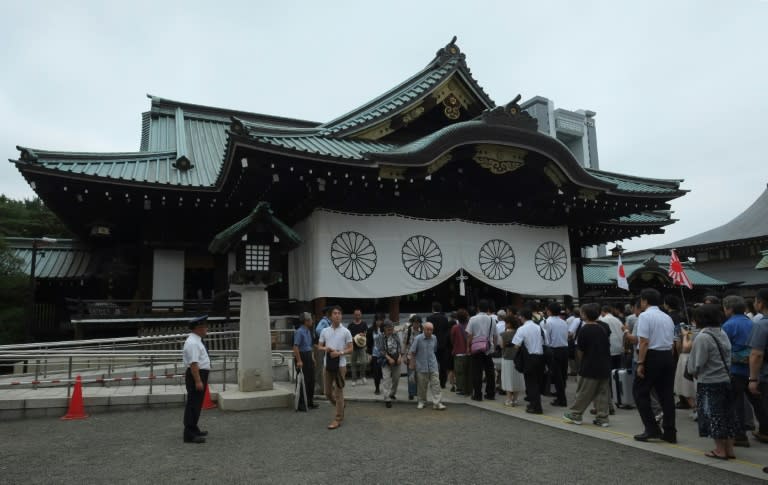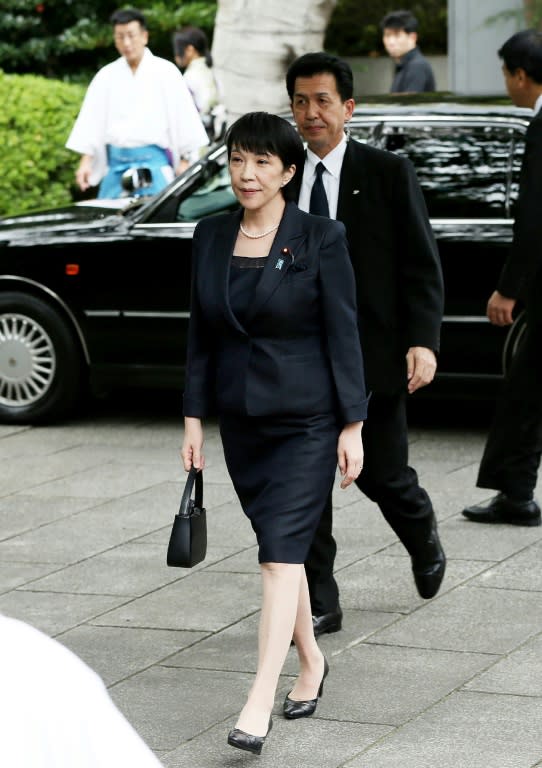Japan cabinet ministers visit controversial war shrine
Two Japanese cabinet ministers visited a controversial war shrine Wednesday, after a mass visit by lawmakers angered China and South Korea which see it as a painful reminder of Tokyo's past aggression. The ministers -- internal affairs chief Sanae Takaichi and Katsunobu Kato, in charge of women's empowerment -- are close to conservative Prime Minister Shinzo Abe, who did not visit the Yasukuni shrine during this year's four-day autumn festival. Abe, often criticised for what some see as revisionist views on Japan's wartime record, sent a ritual offering to the shrine instead. He has not gone to the site in central Tokyo since late 2013 in an apparent attempt to ease diplomatic tensions. China on Wednesday lashed out at the cabinet ministers' visit, saying the shrine "whitewashes" Japan's past militarism and "reveals its wrong attitude towards history". "China firmly opposes that," foreign ministry spokeswoman Hua Chunying told a regular Beijing press briefing. "We urge Japan to own up to and reflect upon its history of aggression, make a clean break with militarism and use concrete actions to win back trust from its Asian neighbours and the international community." On Tuesday a group of about 85 legislators arrived at the leafy site for an annual pilgrimage, earning rebukes from Beijing and Seoul. Yasukuni honours millions of Japanese war dead, but also senior military and political figures convicted of war crimes after World War II. The indigenous Shinto religious shrine has for decades been a flashpoint for criticism by countries that suffered from Japan's colonialism and aggression in the first half of the 20th century, including China and Korea. Abe and other nationalists say Yasukuni is a place to remember fallen soldiers. They compare it to Arlington National Cemetery in the United States. His visit in 2013 to mark his first year in power sparked fury in Beijing and Seoul and earned a diplomatic rebuke from close ally the United States which said it was "disappointed". Abe has since refrained from going, sending ritual offerings instead.

 Yahoo Finance
Yahoo Finance 

